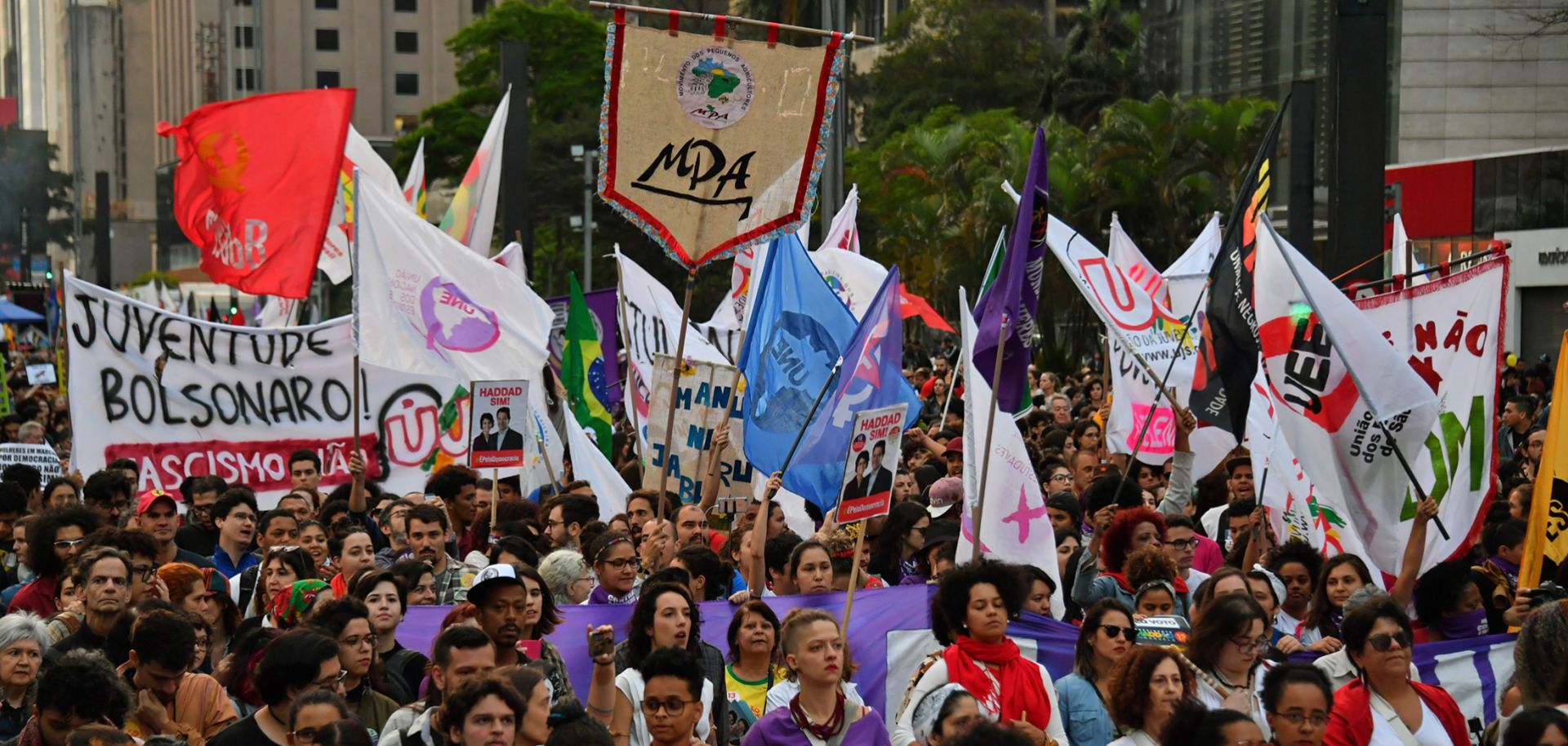ASSESSMENTS
In Brazil, Any Anti-Corruption Mandate Will Meet Political Obstacles
Oct 26, 2018 | 06:15 GMT

Brazilians rally against far-right presidential candidate Jair Bolsonaro in Sao Paulo on Oct. 20. Bolsonaro is leading his opponent, leftist Fernando Haddad, in the polls. Both candidates promise to fight corruption if elected president on Oct. 28, but various obstacles will shape the next administration's anti-corruption policy.
(NELSON ALMEIDA/AFP/Getty Images)
Highlights
- The next Brazilian administration will come to power with a mandate to deepen anti-corruption probes and deliver greater results against perceived graft.
- Brazil's new government will have two general choices at its disposal: create institutions to more effectively detect and deal with corruption, or work within the existing institutions to indirectly target corruption through legislative amendments, including enacting stricter criminal penalties.
- Obtaining funding to support extensive institutional reforms, balancing anti-corruption pursuits against competing political priorities, negotiating for legislative change with Brazil's highly fragmented National Congress and other bureaucratic obstacles will shape the next administration's anti-corruption policy.
Subscribe Now
SubscribeAlready have an account?
